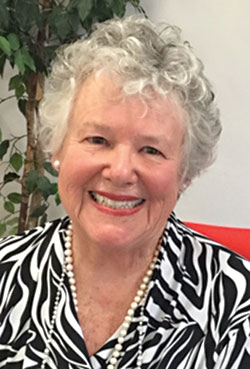Reuniting with Grandfather’s ‘Good Ship Tobermory’ on its 100th birthday

We had made it as far as Lansing, Mich., by air and now needed to travel by car to Sault Ste. Marie, where the old “Tobermory II,” now named “Clyde D. Neville,” was docked. The trip would take us to the very tip of Upper Michigan right on the border of Canada.
The next morning, we picked up our rental car for the so-called six hour drive north. It was at this moment we made a gigantic mistake. We did not take a car with GPS. We didn’t think we needed such equipment because all we had to do was get on a certain road and head straight north. Right?
Wrong. We spent a frustrating and maddening hour and a half trying to find the road north. What we didn’t realize was road work, detours and poor signage kept us in a constant state of confusion. In addition, Michigan has a large number of non-English speakers that seem to be in charge of every gas station and convenience store in the Lansing area. After several tries stopping to get directions, we gave up trying to communicate.
Eight hours later we had crossed the Mackinac Bridge and suddenly arrived in the charming town of Sault Ste. Marie, now a summer favorite tourist spot. I say suddenly because we saw a sign warning us this was the last exit in the USA and if we continued and crossed the Sault Ste. Marie International Bridge ahead of us we would be in Canada. We made a sharp right off the exit ramp just in time.
The name Sault Ste. Marie is a reminder that the French were here before the English. As we pulled up to the Ojibway Hotel, a reminder the native Indians were here before the French, we found it overlooked the locks connecting Lake Superior to Huron. There were two freighters inside, one aimed in each direction: the first heading west to Lake Superior and the other east to Lake Huron.
Wow! (That’s my Ohio expression that has stayed with me regardless of my 50 years in Virginia). Seeing freighters — what Father had always called “Big Boys!” and two of them at one time equaled “Double Big Boys!” I was so excited I almost jumped out of the car to rush over for a closer look. But my husband, Chip, insisted we check into the hotel first.
Hurrah! I was back in the land of Big Boys otherwise thought of as Great Lakes country! How thrilled I was!
I had seen the constant movement of freighters passing by our home in Vermilion, Ohio, overlooking Lake Erie, sometimes passing so far out from shore that I only saw the tell-tale whiff of smoke on the horizon. Or passing them close by on our family journeys cruising around the Great Lakes on our boat during my years growing up in Vermilion. Father always insisted we drop everything and take a good look whenever a Big Boy passed us by. It was almost a religious rite.
It was years later before I understood why Father wanted us to revere freighters. I eventually learned that four of my uncles on my mother’s side, the Parsons and Horton families of Vermilion, had been captains of freighters on the Great Lakes including uncles Bob, Cliff and Burdette Parsons and even a great uncle, Charles Horton.
From what I could gather from Father’s reverence of Mother’s side of the family was that connection to the Parsons and Horton families which had come to America two centuries before the “nouveau” Wakefields made me and my two sisters, Alice and Georgia, and at least in Father’s eyes, genuine “Great Lakes Bluebloods.”
In the ’40s and ’50s when I grew up on Lake Erie the Big Boys were about 500 feet long. Today the freighters are more than twice the size and while at the “Soo” (the Anglicized version of Sault) we saw several 1,000-plus footers come through the locks and steam off again. It was thrilling.
Just before Chip was turning into the Ojibway Hotel, I heard one of the freighters blow her long, mournful, low goose-bumpy horn! That did it!
I bolted from the car like a mad woman headed full steam to the locks. Chip could check into the hotel by himself! As for me, I was going to lavish at the thrill of being back in freighter country once again!
Oh, how could I have left the Great Lakes! How could I have turned my back on my heritage and gone off to Virginia (where they never say, “Wow!”) to college and married a Virginian and lived the rest of my life in the South when I was really a Great Lakes girl? Whatever was I thinking? Why would anyone leave his native land?
During dinner and all night long, the “Big Boys” passed through the locks. They talked to each other through their constant toots and whistles, little snorts and some long mournful wails. I lay in my bed, tried to sleep, and shivered.
I was so excited by the nearby presence of freighters and knowing I would first see Grandfather’s restored boat on its 100th year the next morning, I could not sleep that night. I just lay in my bed and listened to the Big Boys’ sweet conversation and dreamed of my early life in Vermilion and Father pointing out, and sometimes by name of the freighter and even naming its captain, all the Big Boys that passed in the night.
So, I had several nights where I didn’t get much sleep and that may have been the reason why I broke down so tearfully the next morning when I first laid eyes on the old Tobermory.
I felt like a zombie from lack of sleep and fatigue by the time we pulled into Dennis and Tunee Dougherty’s driveway to their home on the St. Mary’s River and first saw the old “Tob” at the dock. What a beauty!
I had never seen the good ship in person, since I was born well after she was sold by the family in 1933. But I had spent my childhood hearing all about her and the many trips the family, Grandfather and my parents’ generations, all gone now, had taken on the Great Lakes.
And suddenly, it might seem strange, but all that generation of Wakefields returned to me as if they were still alive, my grandparents F.W. and Mary and their nine children, Clara, Albert, Alice, William, Ruth, Fred, George, Ted and Ernest and I swear I could even see Grandfather and Father standing at her helm — their dark brown eyes peeled on the far horizons — which Father had always said to me, “Mays, keep your eyes peeled on the far horizons,” which I think he meant by this for me to be open minded in life and to ever see the big picture and not let yourself ever get bogged down by dogma and all the silly nonsense that is so much a part of life today.
And I was hit with the truth that we are forever a part of our ancestors, and that we always will be, and the realization hit me of how important they are to us as we make our way through life.
And then, with Dennis, Tunee and Chip at my side and a writer working on a story on the three lives of the old Tobermory for the “Inland Seas” magazine, I entered the cabin and first saw the helm.
I took hold of the sturdy original 100-year-old wheel in my hands and looked out at the far horizons. And the tears flowed. And they flowed and flowed. But I cared not! I had returned to my homeland!
(Continued next week.)



